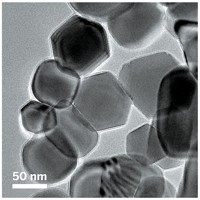Advertisement
Grab your lab coat. Let's get started
Welcome!
Welcome!
Create an account below to get 6 C&EN articles per month, receive newsletters and more - all free.
It seems this is your first time logging in online. Please enter the following information to continue.
As an ACS member you automatically get access to this site. All we need is few more details to create your reading experience.
Not you? Sign in with a different account.
Not you? Sign in with a different account.
ERROR 1
ERROR 1
ERROR 2
ERROR 2
ERROR 2
ERROR 2
ERROR 2
Password and Confirm password must match.
If you have an ACS member number, please enter it here so we can link this account to your membership. (optional)
ERROR 2
ACS values your privacy. By submitting your information, you are gaining access to C&EN and subscribing to our weekly newsletter. We use the information you provide to make your reading experience better, and we will never sell your data to third party members.
Policy
Groups Encourage Nanomaterial Stewardship
Some fear EPA's voluntary program could become mandatory if more companies don't step up
by Britt E. Erickson
July 16, 2008
Industry trade groups that represent nanotechnology companies are urging their members to join EPA's voluntary Nanoscale Materials Stewardship Program (NMSP). In a joint statement issued on July 14, the American Chemistry Council's Nanotechnology Panel, the NanoBusiness Alliance, and the Synthetic Organic Chemical Manufacturers Association's Nanotechnology Small & Medium Enterprise Coalition highlighted the importance of the program in helping EPA make informed regulatory decisions about nanomaterials.
"Information collection under the NMSP is a necessary step for EPA to better understand the potential health and environmental effects of nanoscale materials and to determine if any regulatory changes are needed," the groups wrote.
Since EPA launched NMSP in January 2008, the program has gotten off to a weak start. Thus far, only four companies have provided EPA with basic information about their nanotech products. The agency expects only about a dozen more to do so by July 28, the deadline it originally set for companies. Initially, EPA expected to receive information from more than 200 firms.
Companies have two options under NMSP. They can join the basic program, in which they submit to EPA only the information they already have about their nanotech products, or they can join a more in-depth program, in which they collect information, such as exposure, fate, and transport data, over time and submit it to the agency. No companies have volunteered for the in-depth program to date.
If participation in the program remains weak, the trade groups warn, EPA is likely to make it mandatory.



Join the conversation
Contact the reporter
Submit a Letter to the Editor for publication
Engage with us on Twitter